Real Estate Tips for Nigerian Homebuyers: What You Need to Know
Buying a home in Nigeria is one of the most significant financial decisions you’ll make in your lifetime. Whether you’re a first-time buyer or looking to upgrade your living situation, the process can be both exciting and overwhelming. With a booming real estate market, especially in cities like Lagos, Abuja, and Port Harcourt, it’s essential to arm yourself with the right knowledge to navigate this complex process smoothly. In this blog post, we’ll provide you with practical tips to make your home-buying journey in Nigeria as successful as possible.
1. Do Thorough Research on the Local Real Estate Market
Before diving into the Nigerian property market, it’s crucial to conduct comprehensive research. The Nigerian real estate market is diverse, with varying trends in different cities and regions. For instance, Lagos is known for its bustling real estate market, while Abuja has seen rapid growth due to the influx of government officials and expatriates. Cities like Ibadan and Enugu are becoming increasingly attractive due to their affordability and growing infrastructure.
Here are a few key points to consider during your research:
- Market trends: Look at property prices, demand for homes, and investment opportunities in your desired location.
- Neighborhood analysis: Understand the security, amenities, schools, healthcare facilities, and transportation options available in the area.
- Future developments: Consider government and private-sector plans for infrastructural development, such as new roads, bridges, and commercial centers, as these can significantly affect property values.
2. Work with a Reliable Real Estate Agent
A professional real estate agent can save you both time and money. With extensive knowledge of the local market, an experienced agent will help you find properties that match your budget and preferences. Here’s how to choose the right agent:
- Research and references: Ask for recommendations from friends, family, or colleagues who have bought properties in Nigeria. Verify the agent’s track record and experience in the local market.
- Licensing and certification: Ensure your agent is properly licensed by the Nigerian Institution of Estate Surveyors and Valuers (NIESV). A licensed agent is more likely to follow ethical practices and protect your interests.
- Negotiation skills: A good agent should be able to negotiate better prices on your behalf and help you avoid overpaying for a property.
3. Understand the Legal Aspects of Property Ownership in Nigeria
Property ownership in Nigeria can be complex, and understanding the legal framework is crucial to avoid potential disputes or scams. There are two main types of land tenure systems in Nigeria: the Freehold system and the Leasehold system.
- Freehold: This grants the buyer full ownership of the land and property, often in urban areas or rural areas with proper documentation.
- Leasehold: Typically, the government or a private entity owns the land, and the buyer holds a lease for a certain number of years (usually 99 years).
Key legal documents to check before purchasing a property in Nigeria include:
- Certificate of Occupancy (C of O): This is the primary document proving legal ownership of land in Nigeria.
- Governor’s Consent: If the property is owned by the government, you’ll need to obtain this consent before transferring ownership.
- Deed of Assignment: This document transfers ownership from the seller to the buyer, and it must be registered with the Land Registry.
4. Be Prepared for Hidden Costs and Fees
While you may have budgeted for the purchase price of a property, it’s important to be aware of additional costs that may arise during the process:
- Stamp duty: A percentage of the property price is payable to the government as stamp duty. It’s usually 1% of the sale price.
- Legal fees: If you hire a lawyer to draft your deed or handle legal paperwork, expect to pay legal fees, which typically range from 1-5% of the property value.
- Survey and valuation fees: You may need to conduct a property survey or have the property valued, which incurs additional costs.
- Agent’s commission: Real estate agents in Nigeria generally charge between 5-10% of the property price as commission.
Being aware of these fees will help you avoid unexpected expenses and ensure that your home-buying budget is realistic.
5. Secure Your Financing Options
Securing financing is often one of the biggest challenges for Nigerian homebuyers. While mortgages are available, they can be difficult to obtain due to high-interest rates and stringent eligibility criteria. However, there are several financing options to consider:
- Bank mortgages: Some Nigerian banks offer mortgage products, but you may need to have a steady income, a good credit score, and a substantial deposit (usually 10-30% of the property price).
- Cooperative societies: Some Nigerians choose to join cooperative societies that offer low-interest loans to members for property purchases.
- Personal savings: Many buyers in Nigeria fund their homes using personal savings, which may require a longer time frame to gather the necessary funds but offers the benefit of avoiding interest payments.
If you’re planning to apply for a mortgage, make sure to check the interest rates, repayment terms, and eligibility criteria. It’s also advisable to get pre-approval before you start searching for properties, so you know how much you can afford.
6. Inspect the Property Thoroughly
Before you commit to purchasing any property in Nigeria, ensure that it undergoes a thorough inspection. This will help you identify potential issues that could lead to expensive repairs in the future. Consider hiring a qualified surveyor or building inspector to assess the following:
- Structural integrity: Ensure the property is free from major defects like cracks in the foundation, water damage, or mold issues.
- Plumbing and electrical systems: Check the plumbing for leaks and verify that the electrical system is safe and up to code.
- Legal status: Confirm that the property has all the necessary documents, such as a valid Certificate of Occupancy and no encumbrances.
7. Negotiate the Price
Don’t be afraid to negotiate when buying property in Nigeria. Many sellers expect some haggling, especially in a buyer’s market. Here are a few strategies:
- Start with a lower offer: Offer a price that’s slightly below the asking price. This gives you room to negotiate.
- Point out defects: If you identify issues during your property inspection, use them as leverage to negotiate a lower price.
- Be patient: Don’t rush into accepting the first offer. Take your time and let the seller know you’re considering other options.
8. Finalize the Deal
Once you’ve found your dream property and negotiated the price, it’s time to finalize the deal. Ensure that the sale is legally binding by working with a lawyer to prepare the necessary documents. Some of the steps involved in finalizing the deal include:
- Drafting and signing the sale agreement.
- Paying the agreed-upon deposit.
- Registering the property with the Land Registry.
Conclusion
Buying a property in Nigeria is a significant commitment, and it’s important to approach the process with careful planning and research. By following these tips—conducting thorough research, hiring a reliable real estate agent, understanding the legal requirements, and securing your financing—you’ll be better equipped to make informed decisions and successfully purchase your home in Nigeria.
With the right knowledge and resources, your dream home in Nigeria is within reach. Start your journey today and enjoy the rewards of homeownership in one of Africa’s most dynamic real estate markets.

